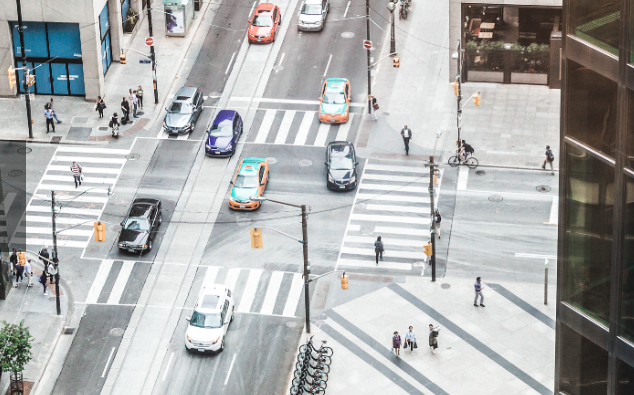

Connected street lights in Taipei: save money and be safe
Taipei is Asia's bustling center of industrial development and thought leadership. City planners need to provide services such as streetlights to a growing population while also saving money while improving citizen safety. Microsoft partner AAEON has proposed an IoT solution to connect thousands of street lights in Taipei. In addition to optimizing lighting times for maximum safety, the solution also allows for predictive and preventive maintenance. Microsoft Azure cloud services help enable in-depth data collection and analysis with its unique security.

Taipei is the provincial capital of Taiwan and a bustling center of political, economic, educational and cultural activities in Asia, with a total population of approximately 2.7 million. In recent years, with the development of high-speed rail and other cutting-edge technologies, the city has entered the era of high-tech economy.
Taipei leaders have been eager to streamline municipal operations. City planners need to provide services such as streetlights to a growing population and improve the safety and security of citizens while saving money.
There are more than 150,000 street lights in Taipei. In addition to requiring maintenance and repair, they need to operate as efficiently as possible to ensure safety wherever and whenever lighting is needed in the city. However, manual management and maintenance of streetlight networks requires a cumbersome system of unbalanced and reactive maintenance. Under this old system, if a street light burned out, citizens had to report it to the city government, and city staff needed to check whether the street light was burned out. Once confirmed, city engineers or crews will need to be on site to replace the bulbs. The system installed a total of 157,000 streetlights, burdening the city's workforce and plunging streets and neighborhoods into darkness.
Taipei needs a smart, connected street lighting system. By utilizing the display, real-time operational and GPS data are sent to the cloud. There, predictive and preventive analytics can be collected and sent to the city so that maintenance workers there can monitor the operation of the entire system. If a light has gone out, or is about to go out, the entire city knows about it immediately. It can then dispatch a crew to resolve the problem in the shortest possible time and fix the streetlight before it burns out.
Simply put, the city needs a cloud-based monitoring system that can scale at every point to tell it the health of each streetlight so that action can be taken to fix or prevent the problem, saving power and time .
Improving the efficiency of urban and other energy sources
Microsoft partner AAEON is headquartered in Taiwan. It proposes an IoT solution to reduce downtime and save expensive labor costs by connecting street lights to assess and monitor their health. AAEON lighting control systems can help cities save energy, reduce costs, reduce maintenance, increase community safety, and reduce harmful emissions. It also supports predictive and preventive maintenance, maximizing safety in addition to optimizing light hours. It uses Azure to ensure deep data collection and analysis with unprecedented security. This is part of the overall smart city ecosystem.
The fact is that citizens rely on street lights not only for ambient light at night, but also for safety. However, the city cannot afford the wasteful expense of streetlights, or their operation.
The city hopes to position itself as a more efficient and connected city in other ways in the future. City officials believe that connected streetlights will not only save money on lighting, but since streetlights are found throughout the city, perhaps those lights could be outfitted with monitors to measure other important conditions.
So it was natural for the city to partner with AAEON, which is built right in its own backyard. AAEON proposes to launch a pilot project in late 2018 to connect its lighting control system to 3,000 streetlights so that cities and residents can see how smart streetlights work more efficiently and save cities money.
“The AAEON lighting control system is designed to allow city workers to see possible problems with street lights at a glance,” said Kevin Ting, AAEON senior project manager for street lighting projects. “We know this solution can help cities provide better services to their residents. It also saves money.”
Lighting the way to an efficient, green future
AAEON lighting control system provides wirelessly connected street lights. It saves energy by improving streetlight efficiency and functionality, reduces carbon emissions by reducing energy consumption, and increases safety by providing reliable visibility.
The city originally had 3,000 urban street lights. "We have reduced the number of city patrol officers responsible for checking street lights, and we hope to eliminate them," said Damien Chin, a project manager at the Taipei Smart City Project Management Office.
Since the solution is based on Azure, municipal data is highly secure and the data received by the solution will be analyzed in real time and presented to municipal staff who can act on the information.
This project is a priority for Taiwan because of the energy savings and reduction of emissions, i.e. reducing air pollution, and it is a solution that is suitable for a city that is always looking for greener and more forward-thinking ways to operate.
In fact, the city already plans to use AAEON solutions to perform other important functions for the city.
"Connected street lights are actually the first step to becoming a connected city," said Li Zhenyu, director of the Taipei Smart City Project Management Office. "These lights can monitor air quality, traffic conditions and many other things to help our cities be more efficient."
“Because streetlights are already installed around cities, we can put monitors on streetlights to measure a lot of other things,” Chin said. “We can use sensors to measure air quality, urban noise levels, traffic flow and density, and more. In the next phase, we will use them to build 5G networks throughout the city."
While all this is happening, Taipei will continue to demonstrate how it is helping Asia lead the way in innovative, sustainable municipal operations. The future is going to look greener, more efficient, and very promising.
Original source: Microsoft
This article is from a translation, if you want to reprint, please obtain authorization from this site first.
